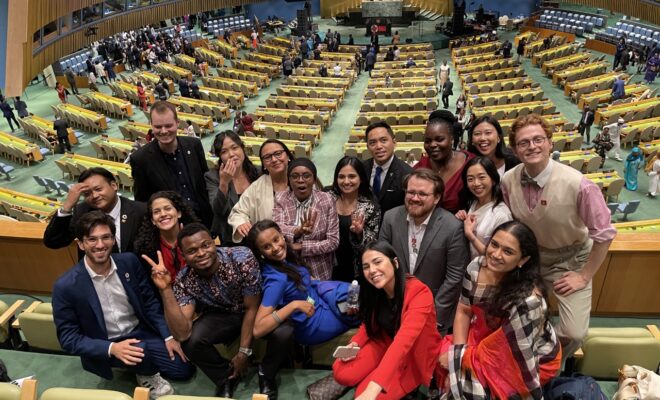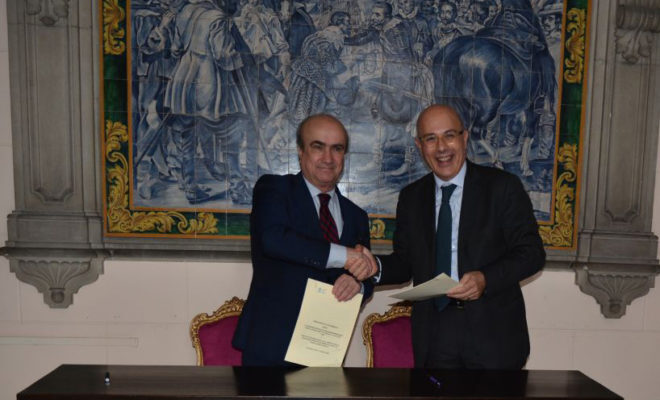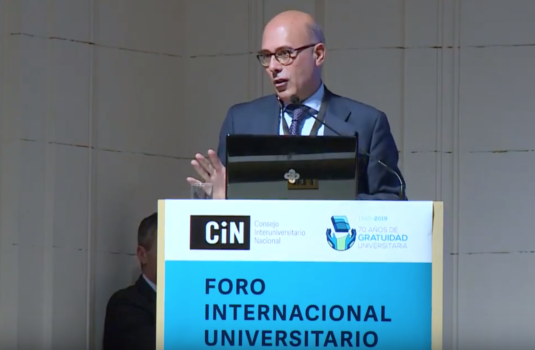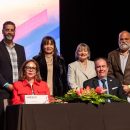Cuba, Zambia and Tunisia acceded to conventions promoting mobility in higher education

Some 5.3 million students are studying higher education outside their home countries. This figure was just 2 million in year 2000. In order to facilitate mobility, UNESCO has created various instruments, which have recently been ratified by Cuba, Zambia and Tunisia.
The aforementioned republics signed conventions that seek greater cooperation, mobility and exchange in higher education. The aim is to improve the quality of institutions and systems in order to move towards equitable and open access to post-secondary education.
During the Convention Ceremony, UNESCO’s Director General, Audrey Azoulay, urged representatives of member states to sign the conventions and ratify the instruments in order to implement the various agreements.
The purpose of the Conventions Ceremony is to promote UNESCO’s standard-setting activity and highlight the commitment of Member States to cooperate in the fields of education, culture, science and information.
Cuba signed and ratified the Buenos Aires Convention on the Recognition of Studies, Degrees and Diplomas in Higher Education in Latin America and the Caribbean, thus becoming the third country, after Grenada and Peru, to ratify this regional instrument. Only one additional ratification by a Member State would be required for it to enter into force, at which time subsidiary texts would begin to be drawn up for its operationalization. This would make it possible to harmonize and guarantee fair, expeditious and non-discriminatory procedures for greater intraregional academic mobility, one of the major objectives of higher education.
Zambia ratified the Addis Convention, which validates studies and certificates, diplomas, degrees and other higher education qualifications in African states. Tunisia ratified the Global Convention, the first United Nations treaty on higher education with a global scope, which was implemented in addition to the 5 regional conventions.
The Global Convention, adopted in 2019, was designed to facilitate academic mobility on an international scale and promote the right of individuals to have their higher education qualifications assessed through a fair, transparent and non-discriminatory system. It aims to widen access to higher education and strengthen research cooperation by promoting the international exchange of students, researchers and job applicants.
The Global Convention is key to “fostering cooperation between education systems, bringing students, researchers and educational personnel from around the world closer together and ultimately making their work and lives easier,” said Tunisian Minister of Education Fethi Sellaouti at an event that brought together ministers and high-level representatives from the five States Parties to the convention.
UNESCO IESALC urges the signatory States of the New Regional Convention for the Recognition of Studies, Degrees and Diplomas in Higher Education in Latin America and the Caribbean (Buenos Aires, 2019) to deposit the instruments of ratification or accession to the Convention, with a view to promoting the processes of recognition of studies, degrees and diplomas in the region, and in the certainty that it constitutes a fundamental tool for the promotion of academic mobility in Latin America and the Caribbean.
—
Photo of Andreas Snildal (from left to right): Ms. Stefania Giannini, Assistant Director-General for Education at UNESCO; Ms. Christine Kaseba-Santa, Zambia’s Ambassador to France and Permanent Delegate to UNESCO; Mr. Mustaq Moorad, Ambassador of the Republic of Botswana to France and Permanent Delegate to UNESCO; Mr. Santiago Irazábal Mourao, president of 41st Session of UNESCO General Conference; Ms. Audrey Azoulay, Director-General of UNESCO; Mr. Agapito Mba Mokuy, Chairperson of UNESCO Executive Board; Ms. Yahima Esquivel Moynelo, Ambassador of Cuba and Permanent Delegate to UNESCO; Mr. Ghazi Gerairi, Ambassador of Tunisia and Permanent Delegate to UNESCO; Mr. Ernesto Ottone, Assistant Director-General for Culture of UNESCO; and Mr. Santiago Villalpando, UNESCO Legal Adviser and Director of the Office of International Standards and Legal Affairs.
RELATED ITEMS








